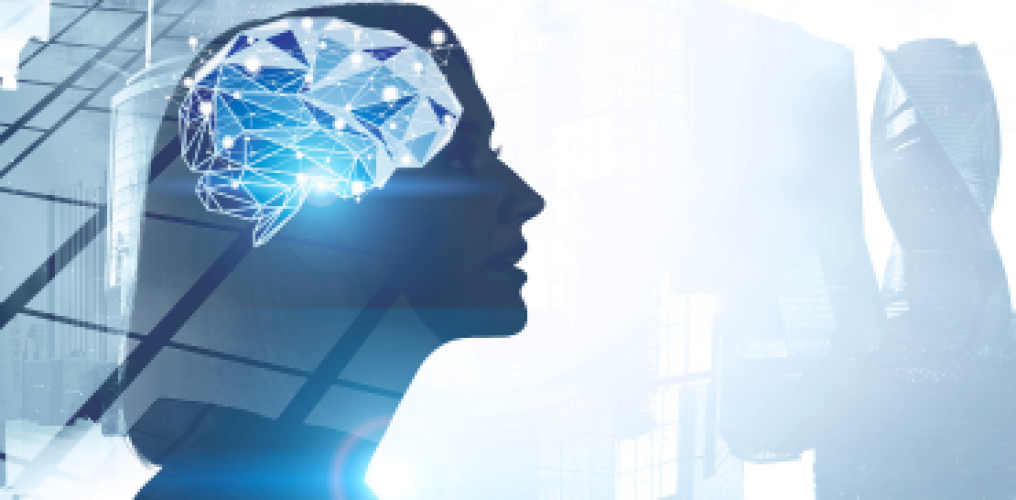
CRICOS Code Courses Approved: Enroll in NAPS' MBA & Professional Accounting Programs
The National Academy of Professional Studies (NAPS) is thrilled to announce that two of its flagship programs—Master of Business Administration (CRICOS Code: 117338B) and Master of Professional Accounting (CRICOS Code: 117336D)—are now officially CRICOS-approved. This approval ensures these programs meet the highest educational standards required for international students studying in Australia.
What is a CRICOS Code and Why is it Important?
For international students, a CRICOS code is more than just a number—it’s a symbol of trust and recognition. Courses listed on the Commonwealth Register of Institutions and Courses for Overseas Students (CRICOS) are officially recognized by the Australian Government, ensuring compliance with the Education Services for Overseas Students (ESOS) Act. This means students can be confident they are enrolling in high-quality programs that meet global standards.
Additionally, CRICOS approval is essential for visa eligibility, making it easier for students to embark on their academic journey in Australia.
About the CRICOS-Approved Courses
Master of Business Administration (MBA)
- CRICOS Code: 117338B
Designed to empower future leaders, the NAPS MBA program equips students with advanced business strategies, leadership skills, and global perspectives. This program is ideal for students seeking to make a significant impact in industries worldwide.
Master of Professional Accounting
- CRICOS Code: 117336D
This program offers a comprehensive curriculum tailored to meet the demands of the global accounting industry. Students gain practical skills and theoretical knowledge to excel in roles such as auditors, financial analysts, or certified accountants.
Why Choose NAPS for Your Studies?
- CRICOS-Approved Excellence: Assurance of government-recognized education.
- Student-Centered Approach: NAPS provides personalized support for international students, including career guidance and cultural adjustment programs.
- Global Career Opportunities: Graduates from these programs are prepared to thrive in competitive industries worldwide.
By choosing NAPS, you’re not just investing in education—you’re investing in your future.
Benefits of CRICOS-Approved Programs
- Student Visa Eligibility: Enrolling in a CRICOS-approved course ensures your visa application meets Australian Government standards.
- High Educational Standards: These programs are carefully reviewed and approved for international study.
- Global Recognition: Earn a degree that is respected worldwide.
How to Apply
Ready to take the next step in your career? Enroll now in one of our CRICOS-approved programs at NAPS!
Here’s how:
- Visit our website to explore the programs in detail.
- Complete the online application form.
- Contact our admissions team for guidance on visa requirements and enrollment procedures.
Start Your Journey Today!
Don’t miss this opportunity to pursue your academic goals with a CRICOS-approved institution. NAPS is committed to providing quality education and fostering a supportive environment for international students.
For more information or to apply, visitNational Academy of Professional Studies (NAPS) or contact us directly.
Make your dream of studying in Australia a reality—enroll at NAPS now!
FAQs: CRICOS-Approved MBA & Professional Accounting Programs
1. What is a CRICOS code?
A CRICOS code is a unique identifier provided to courses and institutions registered to enroll international students in Australia. It ensures that the program meets the Australian Government's quality standards for overseas education.
2. Why is CRICOS approval important for international students?
CRICOS approval ensures the course complies with Australian Government regulations, making it eligible for student visas and guaranteeing high educational standards. It also reassures students of the course's global recognition and credibility.
3. What are the CRICOS codes for these programs?
- Master of Business Administration (MBA): CRICOS Code 117338B
- Master of Professional Accounting: CRICOS Code 117336D
4. Who is eligible to apply for these programs?
These programs are designed for both domestic and international students. However, international students must meet academic, English language proficiency, and visa requirements.
5. How do I apply for these CRICOS-approved programs?
You can apply by:
- Visiting the NAPS website.
- Completing the online application form.
- Submitting the required documents (e.g., academic transcripts, English proficiency scores, etc.).
- Contacting NAPS admissions for personalized assistance.
6. Are scholarships available for international students?
NAPS offers various scholarships and financial aid options for eligible students. Visit the scholarships page on the NAPS website or contact the admissions office for more details.
7. What career opportunities do these programs provide?
- The MBA program prepares students for leadership roles in industries such as finance, marketing, and management.
- The Master of Professional Accounting equips students with skills for roles like accountant, auditor, or financial analyst.
8. Can I work in Australia while studying these programs?
Yes, international students with a valid student visa can work part-time during their studies. Check the Australian Government's guidelines for work hours and conditions.
9. Are these programs globally recognized?
Yes, CRICOS-approved courses are recognized internationally, ensuring your qualifications are valued globally.
10. How can I contact NAPS for more information?
You can reach the NAPS admissions team via email, phone, or by visiting the NAPS website for more details on the programs and application process.

Exploring IT Job Opportunities in Sydney: A Guide for NAPS International Students
Sydney is Australia's leading technology hub, offering a diverse range of opportunities for IT professionals. As an international student at NAPS, your entry into Sydney's IT job market can be full of exciting opportunities if you know where to look and how to prepare. This guide will help you understand the market, find job opportunities, and connect with Sydney's tech community.
- Understanding Sydney’s IT Job Market
The IT job market in Sydney is vast and diverse, with opportunities in a variety of fields such as software development, cybersecurity, cloud computing, data analytics, and IT support. Sydney is home to both established tech titans such as Google, Atlassian, and Amazon Web Services, as well as a thriving startup scene centred on AI, fintech, and digital services.
Programming (Python, Java, and SQL), cloud solutions, data science, cybersecurity, and DevOps are all highly sought-after skills. Entry-level positions are typically available to students who can demonstrate strong technical skills and adaptability.
- Top Job Search Platforms
The following job search platforms are widely used in Australia and offer numerous opportunities in IT:
- Seek (seek.com.au): Australia’s leading job site, with a wide range of IT roles.
- Indeed (indeed.com.au): Known for both full-time and contract positions across various experience levels.
- LinkedIn: Allows you to connect directly with recruiters, join industry-specific groups, and apply for roles at top companies.
- GradConnection: Aimed at graduates, this site offers entry-level IT jobs and internships ideal for building practical experience.
- Australia’s Jobactive (jobsearch.gov.au): Government-supported job site with roles suitable for recent graduates and those with work restrictions.
Encourage students to set up job alerts on these platforms to receive updates on new job openings.
- Networking Opportunities in Sydney’s Tech Community
In Sydney's cutthroat job market, networking is essential to success. Making connections with experts and going to events as an international student can provide you with insightful information and potentially lead to career referrals.
Popular networking events include:
- Sydney Tech Meetup and Startup Grind Sydney: Monthly meetups for technology professionals, offering insights into the latest tech trends.
- AWS Summit Sydney and Data Science Melbourne/Sydney: Larger annual conferences focused on cloud computing and data science, where you can connect with industry experts.
- General Assembly and Fishburners: These coworking spaces and educational hubs offer regular workshops, hackathons, and networking events focused on tech.
Joining online communities through platforms like Slack (e.g., Sydney Startups) or Discord is another effective way to network from anywhere.
- Working with Recruitment Agencies
Several recruitment agencies specialize in IT placements in Sydney, and connecting with a recruiter can streamline your job search. Notable agencies include:
- Peoplebank
- Michael Page Technology
- Hays IT
- Robert Walters Technology
These agencies often have access to exclusive job openings and can help you prepare for interviews and assessments, so it’s worth establishing a professional connection with them.
- Building a Stand-Out Resume and Interview Skills
In Australia, resumes are usually straightforward and focused on measurable achievements. Highlight technical skills, specific projects you’ve worked on, and any practical experience relevant to the role you’re applying for.
Key Tips:
- Use bullet points to list responsibilities and achievements for each position, focusing on quantifiable results (e.g., “Developed a Python script that reduced data processing time by 40%”).
- Be prepared for behavioral interview questions, as Australian employers often prioritize soft skills like teamwork, problem-solving, and adaptability.
- Research the company culture and demonstrate an understanding of their values in your application.
- Support and Resources for International Students
Keep in mind that NAPS provides career resources to assist you as you begin your job search. Additionally, websites like Fair Work Australia and Study Australia can be excellent resources for learning about work conditions and visa regulations, and the Fair Work Ombudsman offers helpful information on your rights at work.
Final Words
Breaking into Sydney’s IT market is achievable with persistence, preparation, and networking. You'll be well-equipped to thrive in the local employment market if you make use of these tools, maintain your skills, and network with Sydney's IT community.
I wish you well as you navigate the dynamic IT world of Australia!

NAPS International Student Caps and Updates
In response to proposed legislation that would limit international student enrolments, NAPS is carefully evaluating how such changes might impact our institution and community. NAPS remains firmly opposed to these caps, recognising the invaluable contributions international students make to the social, intellectual, and cultural vibrancy of our campuses and cities. Our commitment to welcoming international students and providing a world-class education remains steadfast. We will continue to seek and support talented students from around the globe and encourage prospective international students to apply.
Importantly, these proposed caps do not currently affect students already enrolled in our graduate programmes or those pursuing an undergraduate degree who plan to continue directly into our graduate programmes.
We will keep this page updated with the latest developments regarding the proposed legislation. Please check back regularly for new information.
Frequently Asked Questions (FAQs)
1. What is the international student cap at NAPS, and why has it been implemented?
An international student cap is a limit on the number of international students that can enrol in a higher education institution. In Australia, the government has announced that the cap for 2025 will be 270,000 for all new international students except for a few exempt cases.
NAPS aims to maintain a balanced, high-quality learning environment. By implementing the caps on international student enrolments, we will ensure access to resources and support services for all students, fostering a diverse and sustainable academic community.
2. How will these changes impact my application to NAPS?
While NAPS remains open to international applications, students may experience increased competitiveness during the admissions process. We encourage applicants to complete their applications early to secure a spot in NAPS.
3. Are there any priority admissions criteria for international students?
NAPS assesses all applicants holistically, but students with higher academic achievements, English proficiency, and alignment with NAPS’s values may have an advantage. Specific guidelines can be found on our admissions page.
4. How will current students be affected by the cap?
The cap will not affect current NAPS students’ status. However, some adjustments in class sizes and availability of elective courses may occur. NAPS remains dedicated to offering all students a robust educational experience.
5. What support services are available for international students impacted by these changes?
NAPS offers a wide range of support services, including academic counselling, and mental health resources, to ensure that all students can thrive in their academic journey.
6. I have an offer to NAPS for 2025. What should I do?
If you have an unconditional offer for Semester 1, 2025, we strongly encourage you to accept it to secure your place. For students with a conditional offer for Semester 1, 2025, we recommend meeting any outstanding conditions as soon as possible and then proceeding to accept the offer.
For additional support, please contact us: admissions@naps.edu.au
Updates and Important Notices
NAPS will continue monitoring government policies and the needs of our student body. We encourage students and agents to refer to this page regularly for the latest updates.

What and How Professionals Perform
Towards Continuous Improvement Along Your Professional Journey
The act of being a ‘professional’ is not and endpoint, but a lifelong journey on which you continue to learn, unlearn as you consider new evidence, and then learn again. This view is supported by research in education as well as other branches of science, including psychology. Building one’s repertoire of professional skills involves constantly strengthening of existing connections and the generation of new ones.
Importance of testing
In converting study into mastering new knowledge perhaps the single most important strategy is to regularly ‘test’ yourself as you go. Reading and re-reading is not nearly as effective as testing yourself. Taking tests on the new material multiple times will result in neuro-coding, i.e. locking it into your mind. So, the pattern should be study, then test. Study some more, test again.
It is important that you see testing in a positive light. Recognise that emotion plays an important role in learning and motivation to learn. See testing as ‘learning’ not ‘evaluation’
Focus / alertness / motivation
Attention and focus are vital. Applying our attention and focus turns on the nervous system. Be honest with yourself. Focus and attention involve commitment and hard work. Successful students can force themselves to focus. They commit to put in the hard work. They understand that learning is meant to feel difficult. It requires effort. You can do hard things. Moreover, doing hard things is vital for personal and professional growth.
As philosopher Will Durant argues:
“The golden mean, however, is not, like the mathematical mean, an exact average of two precisely calculable extremes; it fluctuates with the collateral circumstances of each situation, and discovers itself only to mature and flexible reason. Excellence is an art won by training and habituation: we do not act rightly because we have virtue or excellence, but we rather have these because we have acted rightly; “these virtues are formed in man by his doing the actions” we are what we repeatedly do. Excellence, then, is not an act but a habit: “the good of man is a working of the soul in the way of excellence in a complete life;... for as it is not one swallow or one find day that makes a spring, so it is not one day or a short time that makes a man blessed and happy.”
Don’t make excuses. Don’t wait till you get motivated. Action precedes motivation. As H. Jackson Brown Jr. noted:
“Don’t say you don’t have enough time. You have the same amount of hours per day that were given to… Michelangelo, Mother Teresa, Leonardo Di Vinci… and Albert Einstein.”
Seek feedback
Learners should actively seek feedback from their teachers, peers and other stakeholders. Constructive feedback helps identify areas of improvement and provides an opportunity for growth. Actively engaging in discussions and collaborating with others can foster creativity and lead to deeper knowledge and better learning strategies.
Use all your senses
Memory, learning and focus are also enhanced when one uses all your senses. See it, hear it, write it down and then test yourself on it to determine what you know, how well you know it, and what you don’t know.
Power of story
Another powerful strategy involves the interleaving of information. This is especially true in relation to the power of story to help you link elements together and trigger your mind and aiding recall and deeper synthesis of the information
Power of sleep
There is also a strong link between one’s physical and mental health. A good night’s sleep is vital for learning. Actual changes that come about in the learning process do not occur during focus, but during sleep, especially during rapid eye movement which tends to occur near end of first night following learning.
Nutrition and Exercise
Two other vital components of physical health that play a significant role in effective learning are nutrition and exercise. Good food and regular exercise increase your energy level and enable all biological systems (including the brain) to function at their best.
Mindfulness, meditation, posture and deep breathing
Focus is also assisted by mindfulness and meditation. Ten minutes a day, focused on good posture, breathing and regular meditation and reflection on your professional growth will pay big dividends when it comes to learning. (See e.g.’ Non-sleep deep rest (NSDR): https://www.sleepfoundation.org/meditation-for-sleep/what-is-non-sleep-deep-rest ).
Structure and plan your study
Learning will also be optimised if you schedule your day so that it supports optimal learning. Successful students schedule their study as definite period of day. They tend to have a definite period when they study alone and without distractions, including no phone or surfing the web. It is important to choose times when you know you are alert. Tell your friends-- no interruption!” –and enforce it. Our brains get used to being focused on a particular time. Developing and strengthening such a habit is a vital professional skill that will serve you well throughout life.1
Invest in yourself and commit to continuous improvement
Continuous improvement is the key to staying relevant in the ever-changing world of all professionals. It involves constantly learning new methodologies, tools, and techniques to enhance productivity and efficiency. By embracing a mindset of continuous improvement, successful professionals can keep up with industry trends and deliver better results.
Successful professionals should invest time and effort in training and upskilling themselves. Continuous learning and professional development enable testers to acquire new skills and stay competitive in the industry. By regularly updating their knowledge and skill set, learners can improve their ability to tackle complex challenges.
Continuous improvement is not a one-time activity but a lifelong commitment. It requires dedication, perseverance, and an eagerness to grow. By making continuous improvement a part of their professional journey, you can become more effective, efficient, and valuable contributors to your profession and wider community. Also, be curious. Know that there is always something new to learn. Know also that previous and current views must always be tested to ensure that current knowledge still applies to new situations. Curiosity is the fuel that drives continuous improvement. As continuous learners, we must always keep our minds open, stay curious, and embrace new challenges. Only by questioning, exploring, and experimenting can we truly develop new skills and uncover the hidden flaws and vulnerabilities in our current knowledge.
Take time to celebrate achievements
Professionals should acknowledge and celebrate their achievements at every significant step. Recognising the progress made, boosts morale and motivates learners to keep pushing forward. Celebrating achievements also fosters a culture of appreciation and collaboration with other members of your learning and professional community.

Social Work: Many Career Paths to Choose From
Emeritus Professor Eugene Clark
Graduates with a social work degree have many pathways leading to a variety of professional careers in public or private sectors.
Examples include:
- Medical Care Delivery Settings:An important and popular setting for social workers is in the health care field. The need for social workers in the health care ssector will increase substantially as governments cope with ageing populations.
- Community Health Settings act as intermediaries between communities and social and health services. Their goal is to facilitate people’s access to these services, to improve their overall quality, and to inform the community members about available programmes, rights, etc.
- Education Settings:Another important context in which social workers play a vital role is providing support in education settings, especially serving to promote productive family/school/community relationships. They also play a support role for children with disabilities and child protection. They work in coordinating government and community support in crisis situations.
- Case Managers:Social workers as case managers support people in need by directing them to the appropriate government, community or private sector providers of services. They assist in helping clients to develop a plan of action and guide and work with clients as they progression the road to recovery.
- Mental Health Care Contexts:Other social workers focus on mental health services. This involves offering psychological care to people dealing with a wide range of problems, for example drug addiction, depression, stress, or abusive relationships.
- Pairing with other Professionals: Social workers often work with other professionals from such fields as education, human resources and work with professionals from other fields, like education, law and healthcare. In the case of law, for example, social workers play support and investigative roles dealing with such issues as anti-discrimination, human rights, child abuse, domestic violence and more.
- Substance Abuse Counsellors help people who struggle with alcohol or drug addiction, food disorders, and other behavioural problems. Substance abuse counsellors strive to teach people and help them change.
- Social Work in the Workplace: The concept of workplace safety in modern societies has increasingly expanded to include duties on employers and management to ensure a safe psycho-social environment. Thus, employers will increasingly look for employees and leaders who have the appropriate ‘soft-skills’ to ensure a safe and productive work environment for all. See: https://www.safework.nsw.gov.au/resource-library/list-of-all-codes-of-practice/codes-of-practice/managing-psychosocial-hazards-at-work
- Social workers in Government: Other social work graduates are engaged in government roles such as public policy analysis, policy development and program delivery design.
- Other Roles: Graduates with social work degrees also find jobs in such areas as: behavioural management aide, case management aide, community outreach worker, eligibility worker, human services specialist, etc.
In short, you will find opportunities for social work wherever people need assistance in negotiating the complex and challenging transitions that occur in life.
The Future is Bright
As shown by the examples above, the hard and soft skills learned in a Social Work degree are highly transferable and predicted to be in high demand leading to a challenging yet fulfilling career.
“There is no greater joy nor greater reward than to make a fundamental difference in someone’s life.” – Mary Rose McGeady

The Importance of ‘Soft-Skills’ for Professional Practice in the 21st Century
Emeritus Professor Eugene Clark
Educators today distinguish between “hard” and “soft skills.” Hard skills are the technical skills required for a job and learned through formal education and experience. These skills are specific and typically can be quantified or evidenced by experience or a certification showing you have completed a particular course or gained a qualification. Examples of hard skills include: computer programming, data analysis, copywriting, foreign language ability, marketing, etc.
Soft skills, in contrast, are more behavioural. Examples are communication skills, conflict resolution skills, the ability to relate to people, ability to engage in effective teamwork, etc. These soft skills typically are measured qualitatively.
While employers want, and successful professionals need, employees with both hard and soft skills, it is the soft skills that will in the future be increasingly valued and in short supply. This is the finding of the World Economic Forum Report which found that nine of the top 10 skill gaps required of todays leaders involve the acquisition and application of “soft skills”.
According to the Report, these high demand soft skills include:
- Analytical thinking
- Creative thinking
- Resilience
- Flexibility
- Agility
- Motivation
- Self-awareness
- Curiosity
- Lifelong learning
At the National Academy of Professional Studies the development of soft skills as well as hard skills is stressed in each of our professional courses and qualifications. In addition, We conduct a series of workshops designed to guide students towards helping them to develop and enhance both their technical hard skills and soft skills."
While our first courses have focused on traditional, more technical’ degrees related to business, we are also developing additional courses which also provide students with the option to pursue a career that has a greater focus on these soft skills. We believe, as does the World Economic Forum Report mentioned above, that such soft skills will be increasingly important. We are committed to working on developing creative ways to integrate these soft skills into the student experience so that students, in turn, will transfer and build upon these soft skills throughout the life of their future career.
The National Academy of Professional Studies (NAPS) has recently been approved to offer the world a degree in Social Work. This for many reasons is an important milestone.
Looking more broadly and to the future, all professions, indeed the world, urgently need to adopt the attribute and valus underlying the “soft skills” involved with social work: service to community, compassion, dedication, care, problem solving, hard work, optimism, motivation, resilience and more.
These values and soft skills will enable future graduates to play leading roles in their chosen profession. This in turn will enable society to preserve our professions, re-invigorate our institutions, build a strong economy, promote responsible government, rekindle personal autonomy and responsibility, renew enthusiasm for public service, protect the environment and enhance the social capital that comes when professions do their part in supporting families and communities.

It’s All In The Behaviour Because Education Trains The Mind
Career Professionals are better humans through practice in training the mind.
NAPS Students in their Bachelor of Business Accounting and B. Islamic Accounting are expected to put a bit of thought into their student behaviors both inside and outside the classroom. Taking a leaf from Krsihnamurthi’s – Education and Significance of Life – students are encouraged to recognize the function of education is to bring about the heightened capability for dealing with their professional life not just their chosen career paths. NAPS students are taught to be conscious of their professional and personal behaviors.One of the many functions of education is to ‘create’ new values. The new value creation needs much work, and NAPS students currently have three years to pursue it. NAPS students have a great opportunity to choose what is suitable for them so that they can consciously exercise their student engagement strategy at NAPS. They commence their professional studies either as an extension of the past (as a school leaver) or as a preparation to train as a career-ready professional. NAPS's three-year program of study provides the student with ample opportunity to be comfortable with any of these options.
Please click here for more information on NAPS vision.
The strategies adopted, and the way academic success is achieved depends on the way the students spend the following years of education in the setting of an Australian Higher Education Provider. Student behaviors in their academic activities have a lasting influence on their personal and professional life.
Training the mind and the opportunity to exercise choice in the practice of business education starts with understanding one’s behavior in an organizational setting.
Here are some of the useful pointers about the behavioral practice I have compiled of student activities outside and inside the classroom we are encouraging students to adopt at NAPS. These have been compiled with the assistance of the NAPS Student Admin Team & the Learning and Academic Support Manager.
- When entering the NAPS venue, say words of greeting such as: ‘Good morning, or Hello’.
- When calling NAPS, please introduce yourself. Please prepare for the conversation by having your ID number and the topic of conversation. It may help you if you write it down.
- When you come to the Front Desk wait for your turn. Please do not butt in and talk over top of the other. It is professional to not only wait for your turn but also make sure you acknowledge who was there before you.
- Respect the space. It is not very professional to enter the side of the desk where the staff member is sitting or standing over the staff member who is attending to the needs of the others.
- Seek permission to enter an office. Do not barge in unannounced.
- Seek permission to use NAPS resources including pen and other objects. It is not your property.
- Be polite to others. Avoid talking in a language that others are not familiar with.
- Read and understand the email before wanting to inquire with the staff. Take charge of your actions. If you need help, make sure you realise you are at the receiving end of generosity and behave professionally and with ethics.
- If you are late to class, do not disturb the rest. Professional ethics requires you to switch off the phone and not interrupt the flow of the session.
- Avoid disruptive behavior, particularly in Campus Venues
- Read and carefully consider the Student Codes of Conduct contained in the Student Handbook. This activity is a precursor of a code of conduct in the workplace.
- Organise your finances responsibly to avoid undue stress and acting unprofessionally.
- Learn to use the technology provided for your use.
- Be a leader and manager by contributing to voluntary Organizations and Clubs including opting to become student representatives:
- Learn time management and best practices for enhanced Time Management and Academic and non-academic success.
- Seek help and assistance promptly for dealing with stress. mental health, Academic pressure, financial concerns, etc.
- Take every opportunity in class to express opinions on different topics and ask questions to generate good discussion.
- Work hard to maintain a healthy study-work-life balance but this requires good time management and a positive attitude.
- Maintain the focus on the end goal – GRADUATE and ask what is next after graduation and lifestyle.
- Prepare to attend all lectures and tutorials on time fully prepared for professional discussion and use of time effectively to maximize learning experiences.
Just remember cultivating professional attitudes is achieved by integrating daily rituals and practices with knowledge and training is achievable by gradually achieving changes in behaviors. One step at a time in all we think and do!
Prof. Sivaram (Ram) Vemuri
Dean
NAPS

Towards A More Inclusive and Sustainable Society
Emeritus Prof Eugene Clark, National Academy of Professional Studies
On Dec 2, 2023 was a keynote speaker hosted in Malaysia: INTERNATIONAL CONFERENCE ON MULTIDISCIPLINARY APPROACH FOR SUSTAINABLE SOCIETY (ICMASS).
My keynote address was entitled: Strengthening Legal Policies in the Inclusion of Persons with Disabilities through Research and Innovation to Address Economic Inequality
The primary goal of this conference was to bring together science, technology, and management areas of research. While the Information Age has empowered an ‘explosion of knowledge’ it has resulted in increasingly specialised disciplines that talk seldom talk with one another and indeed create their own new language and vocabulary that makes them even more isolated. My main message was that: If we are to manifest the wisdom to use this new knowledge and technology for the advancement of humanity, we must get better at talking with one another, respecting one another, sharing our insights and finding the best path forward to a sustainable future.
In my short time, I made the following brief points.
1. Leadership
If we are going to create a sustainable future we require leadership—at every level of society. In the 21st Century we need to think of leadership not as a pyramid, but as a web with all of our disciplines at the centre of it.
We should also be mindful that “The Leadership Challenge” is in the words of Alan Keith is “ultimately about creating a way for people to contribute to making something extraordinary happen.”
Know also that everyone can be a good leader and good follower in word and deed, inspiring each other to be what we know we can be.
2. Pragmatism/Practicality/Operational excellence
In the world of academia, we tend to over-emphasise theory and ignore the importance of practical applications that make a positive difference in the world. As management expert, Simon Sinek argues: “Pure pragmatism can't imagine a bold future. Pure idealism can't get anything done. It is the delicate blend of both that drives innovation.”
A leading example of someone who combined vision and application is Thomas Edison, who noted: “Vision without execution is but an hallucination.”
Operational excellence
We need common-sense, operational excellence. It is easy to tear things down. We need to focus on building things. We need operational excellence--pragmatic, practical, common-sense applications and commitment to making things work and getting things done. We do this by taking one step at a time. As the management mantra goes: “Think big; start small”.
3. Institution Building
Leaders build institutions and institutions build lasting change. In today’s world, it seems that every major institution in society is under attack and failing.
It is vital that professionals from all disciplines use their talents to help strengthen the institutions in society: government, schools, family, law/courts, religious and philanthropic institutions, community groups etc
4. Inclusivity
Paraphrasing former US VP, Hubert Humphrey: The moral test of a sustainable society is how that society and its institutions treat those who are at the dawn of life, the children; those who are at the twilight of life, the aged; those who are in the shadows of life, the sick, the homeless, the needy, the disabled, etc. While the world has many things on its agenda, it is imperative that we not forget the important needs of all of these groups.
Special Education Early Childhood Education. I had the opportunity a few years ago to serve at the CEO of a US company that was the largest private provider of special education services in the US. Not only did I meet some of the most amazing and dedicated people I have ever known, but I saw first-hand what a huge difference special education could make in the lives of individuals, their families and the whole community. I received numerous letters from parents thanking our organization for providing a therapist. Typical were the words of one parent who, wrote: “Thank you for giving me back my son.” Because of his speech problems he could not get along with his classmates or even family members. Your intervention changed not only his life, but our lives.” If a child is one of the estimated millions who suffers from autism and as a result cannot communicate effectively, that impacts not only the child’s life chances, but also creates a terrible strain on the family and the community network in which that child is a part.
The latest research indicates that the best investment in early childhood education and special education comes with early intervention, even before the child goes to school. The most effective intervention is that taken while the brain is in these early stages of development.
It is also important that we see people and disabilities, not as ‘problems’ or only as ‘broken’ but that we appreciate the tremendous contribution they can make to the world. This point is eloquently made in this little story by author Kevin Kling, who is himself disabled:
“Back in the days when pots and pans could talk...there lived a man. And in order to have water, every day he had to walk down the hill and fill two pots and walk them home. One day, it was discovered one of the pots had a crack, and as time went on, the crack widened. Finally, the pot turned to the man and said, "You know, every day you take me to the river, and by the time you get home, half of the water's leaked out. Please replace me with a better pot." And the man said, "You don't understand. As you spill, you water the wild flowers by the side of the path." And sure enough, on the side of the path where the cracked pot was carried, beautiful flowers grew, while other side was barren. "I think I'll keep you," said the man.”
We need to see people with disabilities, not for the cracks in their pots and what they don’t have—but for the many special talents they do have and the many blessings they bring to the lives of all of us.
5. Innovation/Entrepreneurship/Law as an example
Innovation and entrepreneurship are keys to the achievement of a prosperous, sustainable society. As Margaret J. Wheatley in Leadership and the New Science, reminds us:
"Innovation is fostered by information gathered from new connections; from insights gained by journeys into other disciplines or places; from active, collegial networks and fluid, open boundaries. Innovation arises from ongoing circles of exchange, where information is not just accumulated or stored, but created. Knowledge is generated anew from connections that weren't there before."
"We are living through an innovation famine, not an innovation feast—particularly in areas other than digital ... if we can do more innovation, we will not destroy the planet. It’s quite the reverse. It’s the safest way of saving the planet." — Matt Ridely speaking with Naval Ravikant
In common with other institutions, the legal system has struggled to keep up with technology and struggled to devise mechanisms whereby all citizens have access to services. In more recent times, however, suggest that new models are emerging that have the potential to re-engineer legal services so that justice and legal services are more accessible to all. Below is a summary of some of the barriers to access and how technology can help.
Knowledge barriers
In general terms technology advancements are leading to new models of learning that are tailored to the needs of individuals. Developments such as the Khan Academy have brought education to millions of people around the world. The higher the level of literacy in a society, the more informed and engaged its citizens will be.
Before the Internet, laws were found mostly in government, law firms and university law libraries. Law books were very expensive. Thanks to "open government" and other social justice and consumer movements, the laws of most countries are today freely available online. Just one of many examples, is the World Legal Information Institute. With almost 2000 databases on this site, one can find laws from over 130 jurisdictions around the world.
Today, websites can monitor activity, interact with users and tailor information and services to the needs of particular users. Aided by AI legal research will offer new solutions and even help resolve disputes.
Software can also help people navigate across many different government programs to help determine whether they are eligible for low-income legal assistance.
Language and cultural barriers
In our diverse and multi-cultural world, it is also important that the laws be made available in multiple languages. For those who do not speak other languages, software translators are rapidly improving. Moreover, many jurisdictions will make the key legal information available in multiple languages that reflect the diversity within their local community.
Software requires rules and standards to be effective across legal systems. This is the focus of projects like the EU Grotius Project 98/GR/131. Its aim is to promote consistent best practice standards in relation to legal interpreting.
Technology also has the potential to help better tailor legal education models to meet the needs of a more diverse student population and thus play a part in serving the educational needs of those underserved by traditional models.
Technical barriers
The law is also a language of its own and even native speakers can be intimidated by and alienated from a legal system that uses highly formal and technical language that is only understood by those with professional legal training. Software packages make it easy to provide links that put technical terms in plain language and diagrams that make it easier to see how things fit together.
Financial barriers
New models of legal practice, aided by technology, have promise to reduce financial barriers. Leveraging technology (e.g. electronic document assembly) one lawyer can today do the work of many. Virtual law firms mean that lawyers do not have to incur the costs of an expensive office and all the trappings that go with it.
Physical/geographic barriers
Modern courtroom designs are taking into account the "community of users" who are involved. For example, in Charlotte, North Carolina, jurors are provided with comfortable waiting rooms and various services (food, childcare, business services) that make it more convenient for them to wait as well as enabling them to carry out their daily activities while also doing their civic duty of jury service. Mobile courts are also becoming more common
Legal education barriers
Note the roles that virtue reality, artificial intelligence, natural language processing, gamification and other developments will play in educating the next generation of lawyers about the role of technology in enhancing access to justice
Time barriers
Technology enables a 24/7 world of work and access. In an Internet environment matters can be resolved asynchronously and after hours and not be limited to court times and normal business hours.
Innovation barriers
Lawyers and judges tend to be highly risk averse. However, in a time of rapid change and transformation, there is a need for the profession to embrace change and become more innovative or face serious disruption. Legal education, admission policies, law firm models, courts, legislatures, governments -- all aspects of the system must adapt and reboot in order to meet the needs/demands of an Information Age and an increasingly inter-connected, diverse and complex world.
Competition barriers
The legal profession in every country is highly regulated. In many cases professional bodies, such as bar associations and law societies, play a major role in this regulation. While such regulation offers protection to consumers of legal services, it can also result in anti-competitive effects that have inhibited innovation and made the profession resistant to change.
6 Technology tempered by wisdom
Isaac Asimov, Russian-born American author and biochemist wrote: “The saddest aspect of life right now is that science gathers knowledge faster than society gathers wisdom." Similarly, Swiss author, Anne Louise Germaine de Staël, concluded: “Scientific progress makes moral progress a necessity; for if man's power is increased, the checks that restrain him from abusing it must be strengthened."
As we see in recent debates about harnessing the power of artificial intelligence (AI), if we continue to develop our technology without wisdom or prudence, our servant may prove to be our master and maybe even our executioner.
7. Optimism
When watching today’s news with its over-emphasis on all things negative, it is easy to be pessimistic. Indeed, a pandemic of pessimism and cynicism destroys families, undermines institutions and speads gloom and despair to individuals, communities and even whole nations.
Optimism and hope are necessary to inspire and generate the enthusiasm required to make the effort to make things better. As President Franklin D Roosevelt exhorted during the Great Depression: “Men are not prisoners of fate, but only prisoners of their own minds.”
8. Urgency
Finally, it is crucial that we have a sense of urgency. As the poet, Rumi stated so eloquently:
Travelers, it is late.
Life's sun is going to set.
During these brief days that you have strength,
be quick and spare no effort of your wings.
Rumi
That urgency should be accompanied by a spirit that does not shrink from problems but welcomes them as opportunities to grow and bring about a better society. In this task our motto should be “Ad astra per aspera” ---“To the stars through difficulties.” John James Ingalls

Success is a Journey…It begins here!
Deans Blog
It is my privilege to write this blog. I wish to address three aspects – success and the steps each of us needs to take to achieve it, the actions of a successful student, and some suggestions for you to make it in this exciting pursuit of knowledge.
Success is a very value-loaded term. It is very personal but is shaped by many forces of influence since our childhood. For me, success is the opportunity to have the ability for continuous improvement of myself and the people around me. To have ability depends on context, connection, continuity, change, competition, and cooperation. For Alex, it depends on values and being in tune with herself.
Success is not external it is in you. Significantly, your heart does not lie about success. Please ask yourself what success is for you. You decide for yourself what it is and then decide the steps you need to pursue it.
As Pele, the famous footballer said, success “is no accident. It is hard work, perseverance, learning, studying, sacrifice, and most of all love of what you are doing or learning to do”. Once you decide what success is for yourself, the next logical step is to position yourself to be successful. It would help if you organized yourself for success. These are some tips for you to follow:
- Organize your time for success as an international student. You only have 24 hours on any day. You cannot say you are time-poor. Everyone has the same amount of time. You don’t have any more time to allocate! It is about being time-focused. The attention is on how to use time more effectively! You need to plan how you are going to spend your time to achieve success. I found that the best way is to prepare a personal schedule.
- Contextualize your schedule to your conditions. Education is an investment. You invest today to reap the benefits in the future. To create a personal schedule based on your values to achieve your defined success, organize around the lectures and tutorial times and your study time. Then fill in the rest of the activities to achieve your defined success. (Hint: Do not forget to fill in the travel times between your activities).
- Strategize your daily activity. Once you have organized your timetable to achieve your “success”, work out the steps you will follow. For example, when do you have to get up to reach the lecture on time? Have you allowed yourself sufficient time in case there is a delay in the public transport system network? Be realistic when you work out the steps based on your circumstances. Work out a schedule to reach the class at least 10 minutes early. The more realistic you are when setting up these actions the higher the probability of reaching your goals.
- Implement the Plus 1 rule. Plus 1 rule is to plan not only what you wish to achieve but also what you are going to do when you have achieved what you set out to do. For example, you set the goal to attend the lecture. Plan not only how you are going to position your activity to attend the lecture on time but also what you are going to do in the classroom after reaching on time. Ask yourself what you need to take with you to be able to follow the material discussed in the classroom. You need to take something to write on and write with as well as a calculator. These are the basics you will need to help you to be successful in maximizing your chances for successful use of time in the classroom.
- Prepare for effective engagement in the learning process. The unit outline provides you with all the necessary information. Make sure you are familiar with the unit objectives, unit organization, and unit assessments – what, when, and how much they are worth. Based on your understanding of the unit expectations, ask yourself how to be an effective student to maximize learning. Identify the steps you need to take to be successful in your learning. My advice is to prepare for the lecture (one effective way is to take your notes) and answer the tutorial questions as a guide to test your understanding of what you have learned (by comparing the answers you prepared before attending the tutorial with the answers provided by the instructor to the tutorial questions in the tutorial) and plan and implement timely completion of the assessment tasks.
- Achieve study-life balance. It is important to recognize today will not come back in our lives. At the same time, today is connected to yesterday and influences tomorrow. It is therefore important for you to realize what you do today is based on the learnings until yesterday and becomes a building block for tomorrow. So, choose today's activities wisely because you are contributing to the blueprint of your life. So don’t forget to have fun balancing study and life.
I wish you the very best in your pursuit of success. Thank you for the opportunity to be a part of your successful journey. Until, next time…
Prof. Sivaram (Ram) Vemuri
Dean

Why Is AI Bad? Artifical Intelligence's Dark Side Explained
Fraud, Theft, Scams, Political Disruption and More
AI makes it possible to create deep-fakes, ie fake representations of real people or events. Anyone who spends anytime on the Internet will know that there is a plethora of images, audio and video freely accessible. While some uses of deep-fakes are done for innocent fun, others can amount to spreading false information in the middle of a tight political race.
In business deep-fakes can mislead people into believing that a product or service has the endorsement of a particular person or company. Deep-fakes can be used to commit fraud or make other deceitful representations made for illegal and dishonest purposes. It is also possible that deep-fakes become so common that people doubt the legitimacy of all such people or products.
Fake content can cause havoc and panic in the middle of a pandemic, cause chaos in share markets, obstruct justice or falsify information. Criminals are taking advantage of the technology to conduct misinformation campaigns, commit fraud , obstruct justice, sow dissent and division, and even bring down an organisation or even a government.
Another important issue is the potential of AI to breach security, facilitate identity theft, fraud, promote scams, and other crimes. Once an AI developer has such information it is a small step to create multiple versions of that person. These deep-fakes can be used to get access to health data, bank accounts and other important documents and information.
Designers of AI systems need to be aware of the harms that may be facilitated by this new technology. Ethical behaviour within organisations, effective systems of quality control, security and authenticity, and a culture of ethical behaviour are all vital. Externally, governments and industry bodies must also develop laws, regulations and standards that promote the ethical use of AI.
Lessening of Individual Autonomy and Human Interaction
Some experts fear that with increasing automation, we humans will become bored and lazy. We are not too far away from the reality that the world will be dominated and run more by artificial intelligence.
What will this mean for the human race. Will we become passive, bored, lazy and out of touch? Will this disempowerment create and invite a takeover by artificial intelligence systems? Or, will a few elites, using these new and powerful systems, be in total charge with the result that individual freedom will be severely limited
An example of how AI can empower those whose agenda are to gain control over people and limit freedom is found in Carol Roth’s NY Times Best Seller, You Will Own Nothing: Your War with a New Financial World Order and How to Fight Back. The author and entrepreneur paints a picture of what would happen if a new financial world order controlled by global elites are able to gain the type of control made possible, for example, by eliminating all hard currency and enforcing a system of digital currency under the control of a group of government, international organisations, business and technology elites.
She argues that a system of ‘social credits’ would accompany such a system enabling the elites to shut down dissent and control the general population. It will result in debt, deprivation and desperation. It will mean people own fewer assets and that we have less control over their lives thereby lessening the ability to protect one’s wealth now or for future generations.
These questions raise important philosophical, psychological, moral, governance, legal and ethical questions that must be addressed if society is to fully benefit from AI while at the same time managing the significant risks involved.
Mass Unemployment
As mentioned above, the workforce in an AI dominated world may be a dystopia for those who lose their jobs. A lot of industry disruption and job destruction will have to be carefully managed. Governments will have to carefully plan the transition for those industries that are severely disrupted.
Major service functions such as customer service centres are likely to be heavily hit as AI applications coupled with robotics rapidly replace many of these types of roles. For example, most readers have have experienced a chat with a company’s automated answering service. AI ChatBots will become increasingly popular and will replace many of the humans now filling those roles. Customer service A 2022 study from the tech research company Gartner predicted that chatbots will be the main customer service channel for roughly 25% of companies by 2027.
Another example is the fast-food industry. In common with thousands of other young people, my daughters gained their first work experience at a McDonald’s restaurant. Today, customers order via an on-screen kiosk In China AI robotic chefs can cook your food. Other robots can wait on tables and take your order.
At the other end of the spectrum, there are likely to be significant shortages of those people who have the skills to take up the new positions required to support the growth in the AI related fields. There will be a significant battle for talent. And, as in all battles, there will be wounded and casualties and wounded, winners and losers, the dominant and the dominated.
Education
AI presents many challenges for education. Students, faculty and administration will see their systems severely challenged by new AI applications. For academics, it will significantly change aspects of research and scholarship. Many of these developments will bring improvements. The ‘bad’, however, is that it riding this major wave of innovation will require vision, talent, resources, training, resilience and more.
Many will fail. The system will be disrupted. The impact of how this all plays out remains unknown, uncertain, and unpredictable. A case in point is the decades long development of computer assisted learning packages.
They have been very slow to catch on due to many factors: teacher unions fear job losses; the current model is built on the assumptions based on age level rather than development/skill level; educators do not have adequate technology skills; the financial models have not been right and authors are not sufficiently rewarded; people are generally highly resistant to change.
The other challenge for education is to define how it can best serve society by providing the learning, research and training required to meet the multiple needs and demands if society is to gain the benefits of AI and manage the potential disadvantages and harms that may be caused.
Law
At the macro level, laws and regulations will be required to provide the governance framework to guide society in the Age of the Machine. This will be especially challenging given the geographic limits on the application of law and fact that different countries will have different approaches. Underlying the formal legal regime will also be the reality that countries will have different ethical standards. Some countries will see it in their interest to press ahead, despite the risks, in order to gain a competitive advantage over other countries.
At the ground level it will also be important for designers and users of AI systems to be aware of new problems that might emerge. AI systems can and do discriminate. AI tools have the potential to embed unlawful biases and discrimination and do so on a system-wide scale and in a non-transparent way.
This can impact decisions on who gets a loan, who gets hired, who gets favourable administrative decisions, who gets monitored by the police, etc. AI systems also use information, pictures and other intellectual property, all of which is loaded up into the application.
This raises serious issues regarding the potential intellectual property violations that might occur.[2] AI also creates IP thus raising further questions about whether the existing intellectual property legal regime will include IP creation by non-humans.
Ethical and Personal Issues
As mentioned above, the growing development and application of AI to all sectors of human activity raises many ethical issues. It threatens the degree of human autonomy, challenges existing rules, laws and standards in society, threatens a loss of control, challenges expectations of privacy, and so on. A major question is the extent to which we can achieve agreement among nations or even between public and private sectors and other groupings within nations regarding central ethical issues raised by AI.
For example, what should be the degree of transparency underlying the use of AI systems and applications? How can principles of justice and fairness be promoted and protected by AI development? How can we regulate and promote fairness, non-maleficence, responsibility and privacy in the development and use of AI?
There is also a psychological dimension to AI adoption that must be considered. While AI and its applications have grown rapidly, one should not underestimate the limitations and challenges stemming from the natural tendency of humans to cope with, resist and even fear change.
For example, a major roadblock to the implementation of AI applications to augmented medicine is the reality
that doctors and other health care providers have resisted such changes and not been prepared for it. Many patients, however, have welcomed its advantages in providing for a greater autonomy and a more personalized treatment.
More than this, as the impact of AI grows it begins to challenge the relationship between humans and machines. In doing so, it challenges traditional notions of identity, sexuality, gender, relationships and rules as new forms of discourse emerge to explain and govern relationships between machine and human intelligence.

Artificial Intelligence (AI) : The Ugly and the Unthinkable
As Stephen Hawking argued:
"Success in creating AI would be the biggest event in human history. Unfortunately, it might also be the last, unless we learn how to avoid the risks." -Stephen Hawking, Theoretical Physicist
